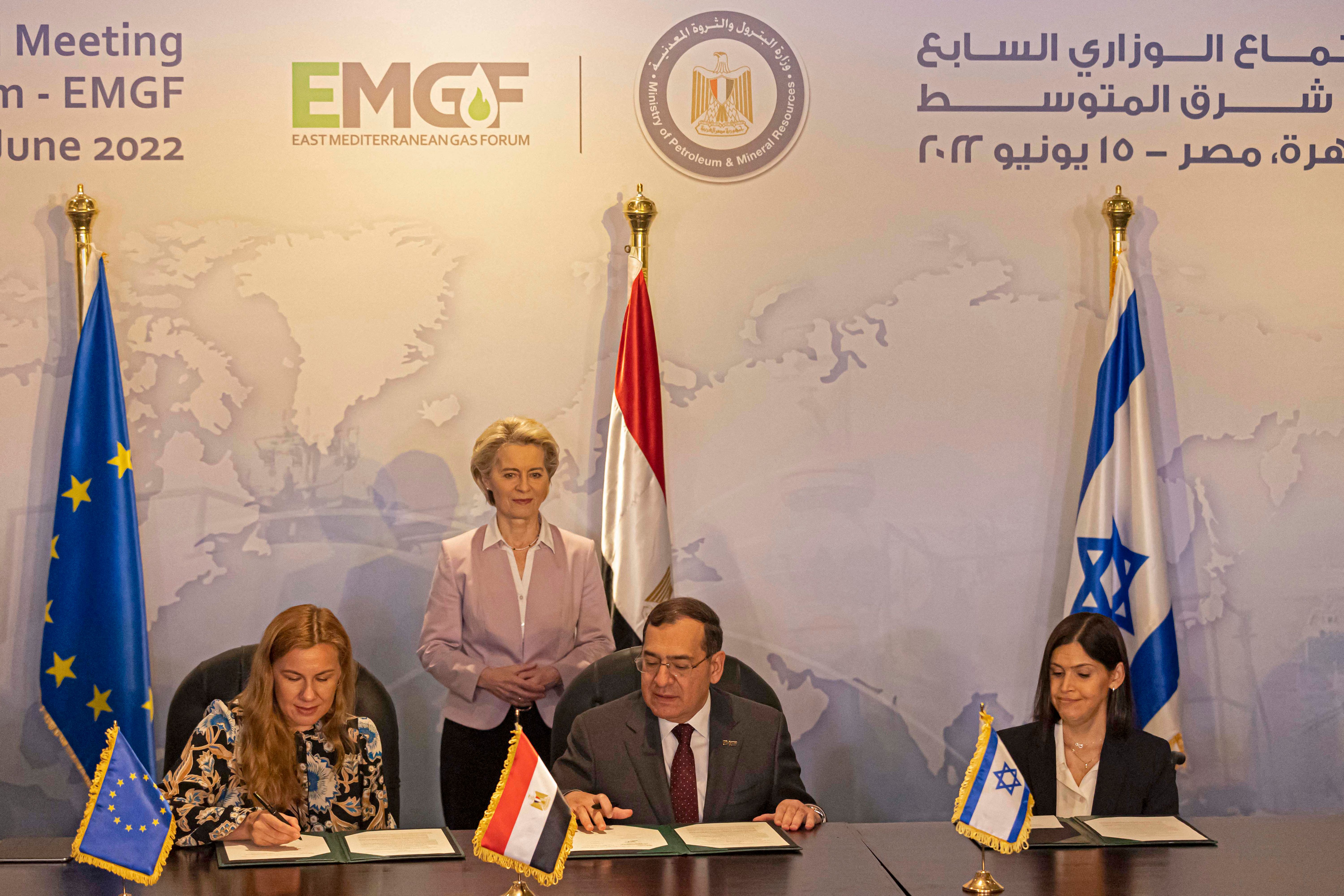The war in Gaza has reshaped Israel’s relations with its Arab and Muslim neighbors in a broad variety of ways, including in the economic sphere.
In recent years, Israel managed to develop significant economic cooperation with countries across the Middle East. These efforts have included increased trade volumes, collaboration on water use and energy production, new investments, and technology transfer. Agreements were signed, ministerial visits took place, minilateral initiatives came to life, economic corridors were envisioned, and the future seemed promising.
After the Oct. 7 Hamas attack and the war that followed, however, regional countries stepped back from many such initiatives. In most cases, their ties with Israel proved to be resilient, despite the hardships and setbacks. But while some types of economic cooperation were sustained, others were blocked and new initiatives have been put on hold.
Seven months after the outbreak of the war, the Middle East Institute’s webinar will assess the current state-of-play in Israel’s regional economic relations. It will convene leading Israeli experts and practitioners to assess the current state of bilateral ties and multilateral frameworks, draw lessons and make recommendations for the future, and identify opportunities for the post-war era.
Speakers
Galia Press Barnathan:
Professor and Director, The Leonard Davis Institute for International Relations, The Hebrew University of Jerusalem
Dan Catarivas
President, The Federation of Bi-national Chambers of Commerce in Israel
Gabriel Mitchell
Director of Undergraduate Studies, Notre Dame Jerusalem
Gabby Bar
President of the Israeli-Palestinian Chamber of Commerce and Industry
Dr. Nimrod Goren (Moderator)
Senior Fellow for Israeli Affairs, The Middle East Institute
Detailed Speaker Biographies
Galia Press-Barnathan is a professor and director for The Leonard Davis Institute for International Relations at The Hebrew University of Jerusalem. Her research areas are regional cooperation, international relations theory, and popular culture and IR. She has published multiple books in these areas of expertise, creating pivotal works such as "Organizing the World- The United States and Regional" and "The Political Economy of Transitions to Peace" (Pittsburg University Press, 2009). She focuses on the importance of economics in stabilizing, initiating, and sustaining a peaceful international relations landscape after conflict ceases.
Dan Catarivas in the President of The Federation of Bi-national Chambers of Commerce in Israel and the Senior Advisor on International Relations at the Manufacturers Association of Israel. Prior to these roles, he served as the Deputy Director General for International Affairs at the Ministry of Finance, Chairman of the Trade Committee of the Multilateral Economic Negotiations, and established the Middle East Department within the Foreign Trade Administration at the Ministry of Industry, Trade and Labor. Additionally, Mr. Catarivas served as the first Economic Counselor of Israel in Beijing, China and served as a representative of the Ministry of Industry, Trade and Labor in the Israeli Liasion Office in Beruit, Lebanon. He holds a BA in Economics and Political Science from the Hebrew University in Jerusalem, and a M.Sc in Economics from the London School of Economics.
Gabriel Mitchell is the Director of Undergraduate Studies for Notre Dame in Jerusalem. Previous to this position, he was the Director of External Relations at the Mitvim Institute. As a leading voice on energy and climate issues in the region, he regularly participates in regional dialogues addressing the intersectionality of energy and climate issues in regional discourse. He has also led the Semester for Global Engagement program at Virginia Tech University's Washington, D.C. Gabriel holds a B.A. in History from The Ohio State University and an M.A. in Political Science from The Hebrew University of Jerusalem. He is completing his doctorate in Government & International Affairs at Virginia Tech University. Gabriel speaks fluent English and Hebrew.
Gabby Bar is the President of the Israeli-Palestinian Chamber of Commerce and Industry, a non-profit organization that seeks to enhance bilateral trade and investments between Israel and the Palestinian Authority, as well as to promote business endeavors between Israelis and Palestinians. Until 2021, Bar has been serving for nearly 25 years at Israel's Ministry of Industry and Trade, holding senior positions as Deputy Director General for Palestinian Affairs, Co-Chairman of the QIZ Committee Israel/Egypt, and Head of the Middle East and North Africa Division.
Dr. Nimrod Goren is the Senior Fellow for Israeli Affairs at the Middle East Institute. Dr. Goren is also the President and Founder of Mitvim - The Israeli Institute for Regional Foreign Policies, Co-Founder of Diplomeds - The Council for Mediterranean Diplomacy, and Co-Chair of a regional initiative at President Isaac Herzog's Israeli Climate Forum. Nimrod holds a Ph.D. in Middle Eastern Studies from the Hebrew University of Jerusalem and was a Hubert Humphrey Fellow at Syracuse University’s Maxwell School of Citizenship and Public Affairs. He was a Teaching Fellow on Middle Eastern Studies at the Hebrew University, and has also worked at the Harry S. Truman Research Institute for the Advancement of Peace, the Jerusalem Institute for Israel Studies and the Nehemia Levtzion Center for Islamic Studies. Nimrod is a past recipient of the Victor J. Goldberg Prize for Peace in the Middle East and the Centennial Medal of the Institute of International Education, and was selected as a Vamik Volkan Scholar by the International Dialogue Initiative.
(Khaled DESOUKI / AFP)












